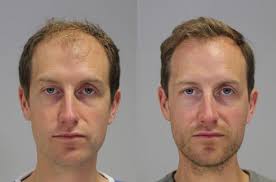Hair loss is a phenomenon that affects nearly 50% of men. Despite the issue being relatively widespread, many men still struggle with self-esteem and self-worth issues as a result of their balding scalp. Can hair loss negatively impact your life? More importantly, can reversing hair loss affect the quality of one’s life?
Below we’ll discuss how reversing hair loss with hair transplants can impact the individual’s life.
Increased self-esteem
The relationship between hair loss, ageing, and disease is often what creates the stigma surrounding the issue. Consequently, a great majority of hair loss patients share mutual feelings of decreased self-worth and a distorted self-image. There is no doubt how immensely hair restoration treatments could affect the patient’s self-esteem. According to one study by NCBI, hair transplant patients showed an increase in self-esteem post procedure. A better self-image gives individuals the motivation the lacked to re-build their life.
Better job opportunities
Having better opportunities is equal parts the effects of increased self-esteem and the person’s overall attractiveness post a hair transplant. Regardless of what impacts this point, men who do not suffer hair loss tend to land better job opportunities according to one study.
A bigger social circle
As opposed to bald men, men with hair are perceived as more attractive and more approachable. As was mentioned above, they are also more confident and successful which eventually leads to a better social life and a bigger social circle. Although this may sound shallow, the truth is baldness is often associated with power and dominance. According to another study published in the Social Psychological and personality science, bald men were perceived to be less attractive, older than their actual age, and more dominant.
Improves the overall physical health
There is a direct link between the overall physical health and the mental state of mind. According to psychological studies, plastic surgery has a positive impact on self-esteem and consequently the state of mind. Often before plastic surgery, people are suck in a bubble of their depression and self-loathing thoughts. These negative thoughts reflect on the body, and our health begins to deteriorate.
Plastic surgery ends this cycle of suffering by making otherwise unachievable aesthetic goal achievable. This directly impacts a person’s self-esteem. The way they look at life changes, they become more positive and more excited for life. This energy, in turn, is mirrored back on the individual’s health.
Source: vibe.ng




